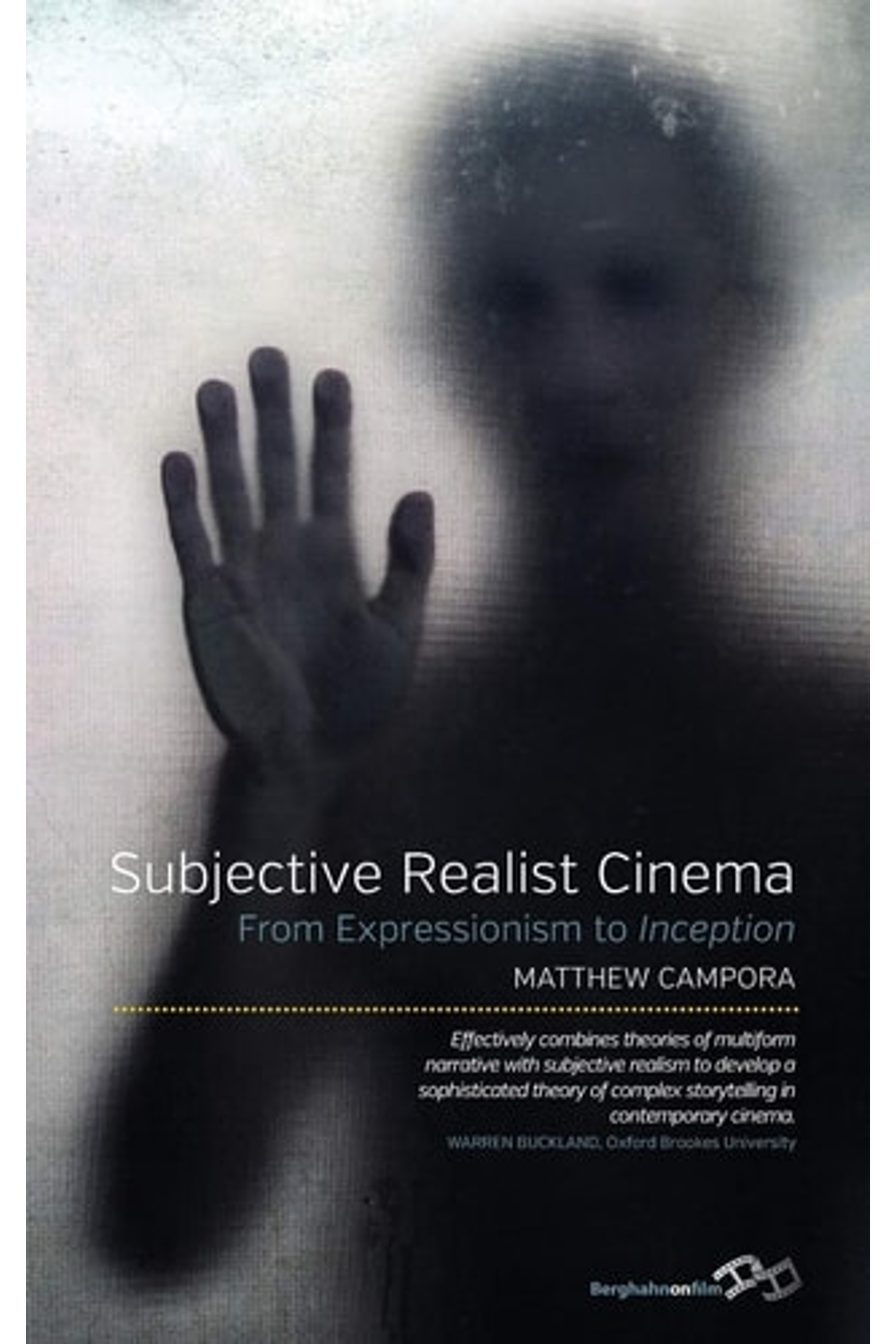Dive into the captivating world of cinematic subjectivity with Matthew Campora’s *Subjective Realist Cinema: From Expressionism to Inception*. This insightful book explores how filmmakers craft narratives that immerse viewers in characters’ internal realities, blurring the lines between objective truth and subjective experience. Campora analyzes films like *Mulholland Drive*, *Memento*, and *Eternal Sunshine of the Spotless Mind*, revealing the techniques used to create these fragmented and mind-bending worlds. Going beyond simple analysis, the book delves into the history of this style, connecting it to earlier movements such as expressionism and discussing how it enhances audience engagement. Discover how mixed and multiple realities shape our understanding of contemporary film with this thought-provoking study from Berghahn Books (2014). Perfect for film students, cinephiles, and anyone seeking a deeper appreciation of modern cinema’s storytelling innovations.
Subjective Realist Cinema: From Expressionism to Inception
32,12 $
In stock
Description
Subjective Realist Cinema looks at the fragmented narratives and multiple realities of a wide range of films that depict subjective experience and employ subjective realist narration, including recent examples such as Mulholland Drive, Memento, and Eternal Sunshine of the Spotless Mind. The author proposes that an understanding of the narrative structures of these films, particularly their use of mixed and multiple realities, enhances viewers enjoyment and comprehension of such films, and that such comprehension offers a key to understanding contemporary filmmaking.
Unlock the labyrinthine world of fragmented narratives and subjective experiences in cinema with Matthew Campora's groundbreaking book, *Subjective Realist Cinema: From Expressionism to Inception*. This compelling work delves deep into the mechanics and meaning behind films that dare to blur the lines of reality, offering a fresh perspective on understanding and appreciating contemporary filmmaking. Campora expertly navigates the complex terrain of "subjective realist" narration, a technique that plunges viewers into the consciousness of characters, distorting and layering realities to reflect their internal states. He doesn't just analyze; he illuminates, showing how these narrative structures aren't merely stylistic flourishes but integral components that shape our understanding and enjoyment of the film. This isn't just another film theory book; it's a guide to unlocking a richer, more profound cinematic experience. Campora goes beyond simply identifying the techniques; he explores *why* filmmakers choose to employ them and *how* they impact the audience. He meticulously examines a diverse range of films, using specific examples including modern masterpieces like *Mulholland Drive*, *Memento*, and *Eternal Sunshine of the Spotless Mind* to illustrate his points. He demonstrates how these films manipulate time, space, and perspective to create immersive and often disorienting experiences that mirror the characters' own internal struggles. *Subjective Realist Cinema* traces the roots of this style of filmmaking, implicitly linking it to movements like Expressionism and other artistic trends that prioritize subjective experience. The book meticulously unpacks the evolution of this narrative approach and its increasing prevalence in modern cinema, arguing that understanding these techniques is crucial for navigating the complexities of contemporary storytelling. Whether you're a film student, a seasoned cinephile, or simply curious about the inner workings of your favorite mind-bending movies, this book offers valuable insights. Campora's writing is both scholarly and accessible, making complex ideas understandable and engaging. He provides not just a theoretical framework, but also practical tools for analyzing and interpreting these films. Published by Berghahn Books in 2014, this hardcover edition of *Subjective Realist Cinema* is a valuable addition to any film library. It's more than just a study of film; it's a window into the evolving nature of storytelling and the power of cinema to reflect the complexities of human consciousness. Prepare to have your perception of film and reality challenged.
Additional information
| Authors | |
|---|---|
| Binding | |
| Condition | |
| ISBN-10 | 178238278X |
| ISBN-13 | 9781782382782 |
| Language | |
| Pages | 160 |
| Publisher | |
| Year published | |
| Weight | 390 |
| Edition | 1 |
SKU: G-9781782382782-4
Categories: Arts & Photography, History & Criticism, Humor & Entertainment, Movies, Performing Arts, Theory
Related products
Classic Ephemera
13,47 $EMPIRE STRIKES BACK, THE
22,85 $
- Additional information
- Currencies
- USD – United States dollar
- EUR – Euro
- GBP – Pound sterling
- CNY – Chinese yuan
- BRL – Brazilian real
- MXN – Mexican peso
- JPY – Japanese yen
- PHP – Philippine peso
- THB – Thai baht
- PLN – Polish złoty
- CAD – Canadian dollar
- MYR – Malaysian ringgit
- AUD – Australian dollar
- TWD – New Taiwan dollar
- CZK – Czech koruna
- SEK – Swedish krona
- HUF – Hungarian forint
- ILS – Israeli new shekel
- CHF – Swiss franc
- HKD – Hong Kong dollar
- DKK – Danish krone
- SGD – Singapore dollar
- NOK – Norwegian krone
- NZD – New Zealand dollar





